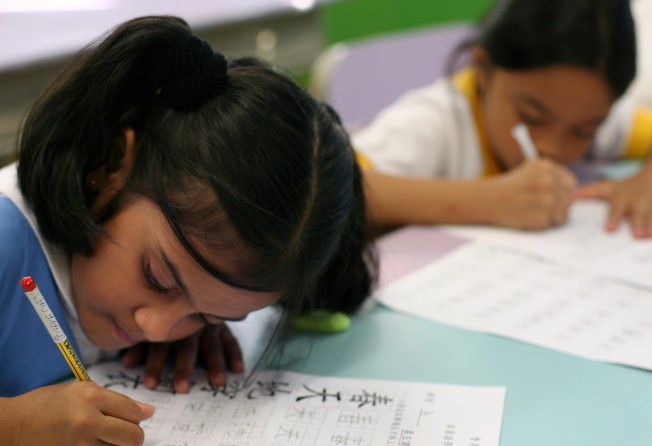Why going to university can be an uphill task for Hong Kong’s non-Chinese kids
- While the Education Bureau has stepped up efforts to assist non-Chinese-speaking pupils in government-funded schools, they will struggle to master Chinese at a level needed to excel in secondary school

The experience of Vincci Nelson’s two non-Chinese-speaking sons in a local primary school is becoming more common with the ongoing promotion of integrated education by the Education Bureau (“Hong Kong’s schools system sets non-Chinese-speaking pupils up to fail by testing them with native speakers”, March 15).
Despite the government’s good intentions to provide non-Chinese-speaking children with equal opportunities in public schools by encouraging, supporting and facilitating their adaptation to the local education system, it is indeed very difficult for these pupils to, as suggested by the Education Bureau, “master” the Chinese language.
A number of strategies have been employed to help such pupils integrate into local mainstream schools, including intensive on-site support, with collaboration in school-based curriculum development, teaching material development, lesson planning, lesson observation, debriefing and even action research.
However, these measures are mostly school-based, meaning that they may not be in alignment with the assessment criteria necessary for these pupils to further their studies through local education and examination mechanisms, such as the Secondary School Places Allocation system, Diploma of Secondary Education examination and the Joint University Programmes Admission System.
Yet, the good news is that under the new academic structure, all University Grants Committee-funded institutions will accept alternative qualifications in Chinese Language, including General Certificate of Secondary Education, International General Certificate of Secondary Education and General Certificate of Education for non-Chinese-speaking pupils who have met the specified criteria.
However, if Nelson’s sons would like to go to a local secondary school through the Secondary School Places Allocation system, they probably have to work even harder at the native-Chinese curriculum, as the specially designed school-based curriculum for non-Chinese-speaking students would not be able to prepare them well enough.
Andy Seto, Shau Kei Wan